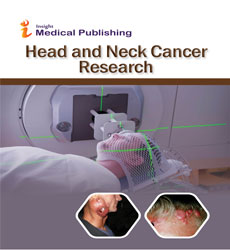Optimization of ENT endoscopic tests considering patient features
Amaia Mendez Zorrilla
University of Deusto, Spain
Received Date: 2022-03-08 | Accepted Date: 2022-03-18 | Published Date: 2022-03-31Abstract
Hypothesis: Personalizing the material used for the tests based on the physiological characteristics of each patient can reduce patient discomfort during endoscopies. Background: It is common to use similar probes in terms of diameter and length regardless of the characteristics of the patient. This can cause discomfort during execution of the tests and can lead to results of worse quality than expected. Methods: A low-cost app installed on an iPad which from a photo of the patient performed at a set distance can extract the necessary measurements for the probe could optimize endoscopies. The application includes an algorithm that automatically calculates distances including bends that the fiber optic probe/strobe would go, so the doctor can prepare material for use with a personalized size for each patient. Results: We have performed simulations in the University of Deusto Evida Laboratory of patients with varied characteristics of age, race and skin tone. Tests have also included patients with different aesthetic characteristics such as beards, glasses or fringes. In 80% of cases the results are satisfactory in the first iteration. In 12.3% of cases the application does not detect the important points for calculations in the first iteration and needs a second, obtaining the expected results in the second attempt. Only in 7.7% of cases the app does not work properly at all, although the authors have found that the capture stage did not meet the 100% ideal lighting conditions and distance to the camera. Conclusions: ICTs are a great support to medical personnel and can improve the user experience during the clinical trials.
Open Access Journals
- Aquaculture & Veterinary Science
- Chemistry & Chemical Sciences
- Clinical Sciences
- Engineering
- General Science
- Genetics & Molecular Biology
- Health Care & Nursing
- Immunology & Microbiology
- Materials Science
- Mathematics & Physics
- Medical Sciences
- Neurology & Psychiatry
- Oncology & Cancer Science
- Pharmaceutical Sciences
